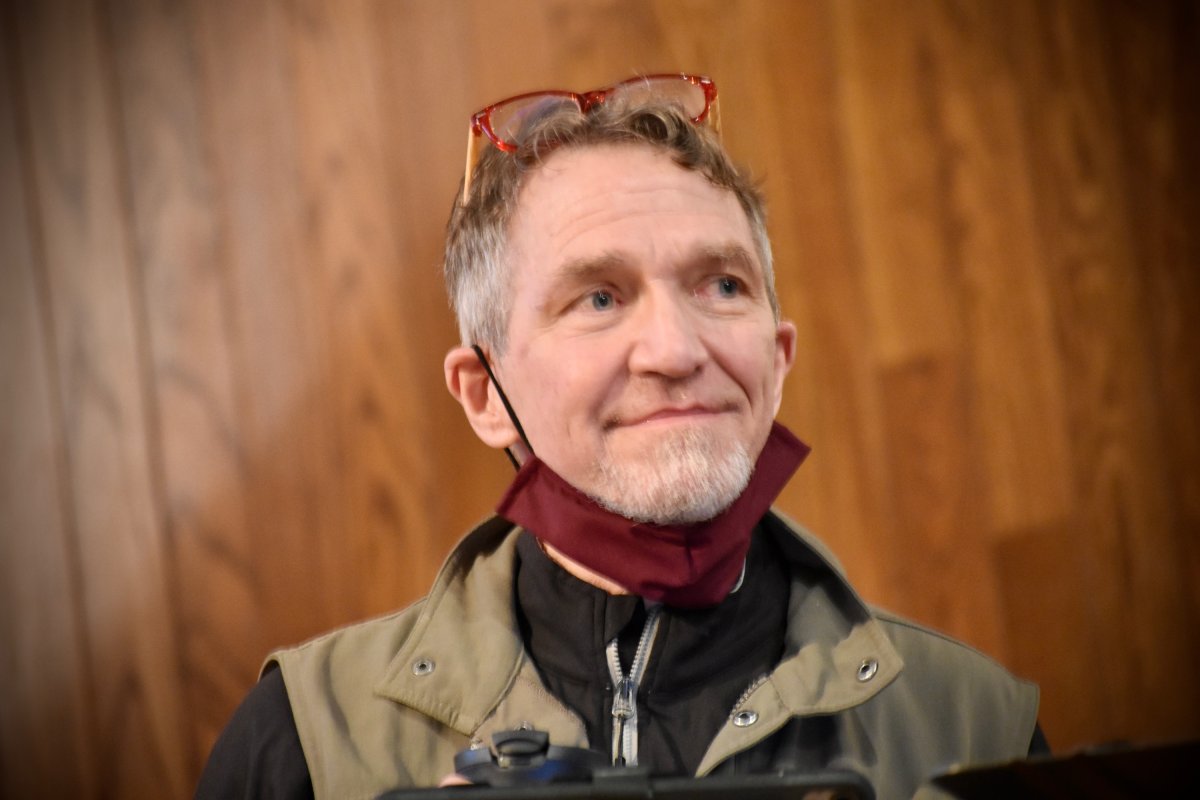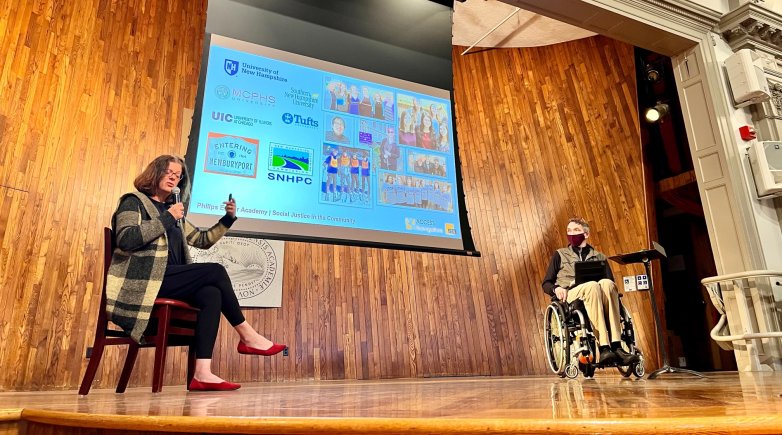Taking the mystery out of accessibility
Access Navigators open our community to those with disabilities.
Anne Weidman (left) and Todd Hanson, founders of Access Navigators, discuss accessibility with a student audience in Assembly Hall.
When Todd Hanson began to address Exeter students from the stage of Assembly Hall on Tuesday morning, the images projected on a screen of Hanson running marathons and hiking mountains were incongruous with the man sitting before them. Hanson is in a wheelchair, his speech the voiced text written on an iPad.
Hanson explained that the life of the man on the screen changed in 2008 when — in the middle of a 50-mile solo hike through the wilderness — he encountered symptoms of the motor neuron disease primary lateral sclerosis. Over time, the disease would take his ability to walk and even talk.
As the rapt Assembly Hall audience would learn, the affliction robbed Hanson of some passions but inspired a new one. An architect and principal at JSA Design in Portsmouth, New Hampshire, Hanson has teamed with colleagues Anne Weidman and William Tucker to found Access Navigators. Initially intended to map accessible restaurants in Portsmouth, the nonprofit has spread to 25 cities and towns across New England. Access Navigators has become a national leader in advocacy for people impacted by disabilities, seeking new ways to keep them connected to their communities.

People with disabilities constitute "the largest minority group in the world,” said Weidman, noting there are 30,000 in the county in which Exeter resides. “It’s the only minority group you can become a part of at any time.”
Hanson’s and Weidman’s visit to Exeter was part of the school’s Core Values Project, dedicated to studying and promoting diversity, equity and inclusion. Stephanie Bramlett, the Academy’s director of equity and inclusion, told the students that as soon as she learned about Access Navigators’ work, she sought them out to visit.
Access Navigators has developed a simple checklist to gauge accessibility in public spaces. Volunteers, with minimal training about the basic requirements established by the Americans with Disabilities Act, audit a venue’s public entrance, interior usability, restrooms and parking. The effort is not about catching non-compliant establishments in the act, it’s about providing information to those with disabilities and information to communities that want to become more accessible.
Today, Hanson is considered one of the pre-eminent architects and thought-leaders in healthcare design — a fact heavily influenced by his condition. “I didn’t understand what living with a disability meant” before the onset of his symptoms, Hanson said. “I was determined to not let my disability define me. But as I learned, we don’t always get to determine what defines us.”
Hanson closed his remarks with a statement he lives by every day: "You can't be included unless you're present. And you can't be present unless you're able to get there."
